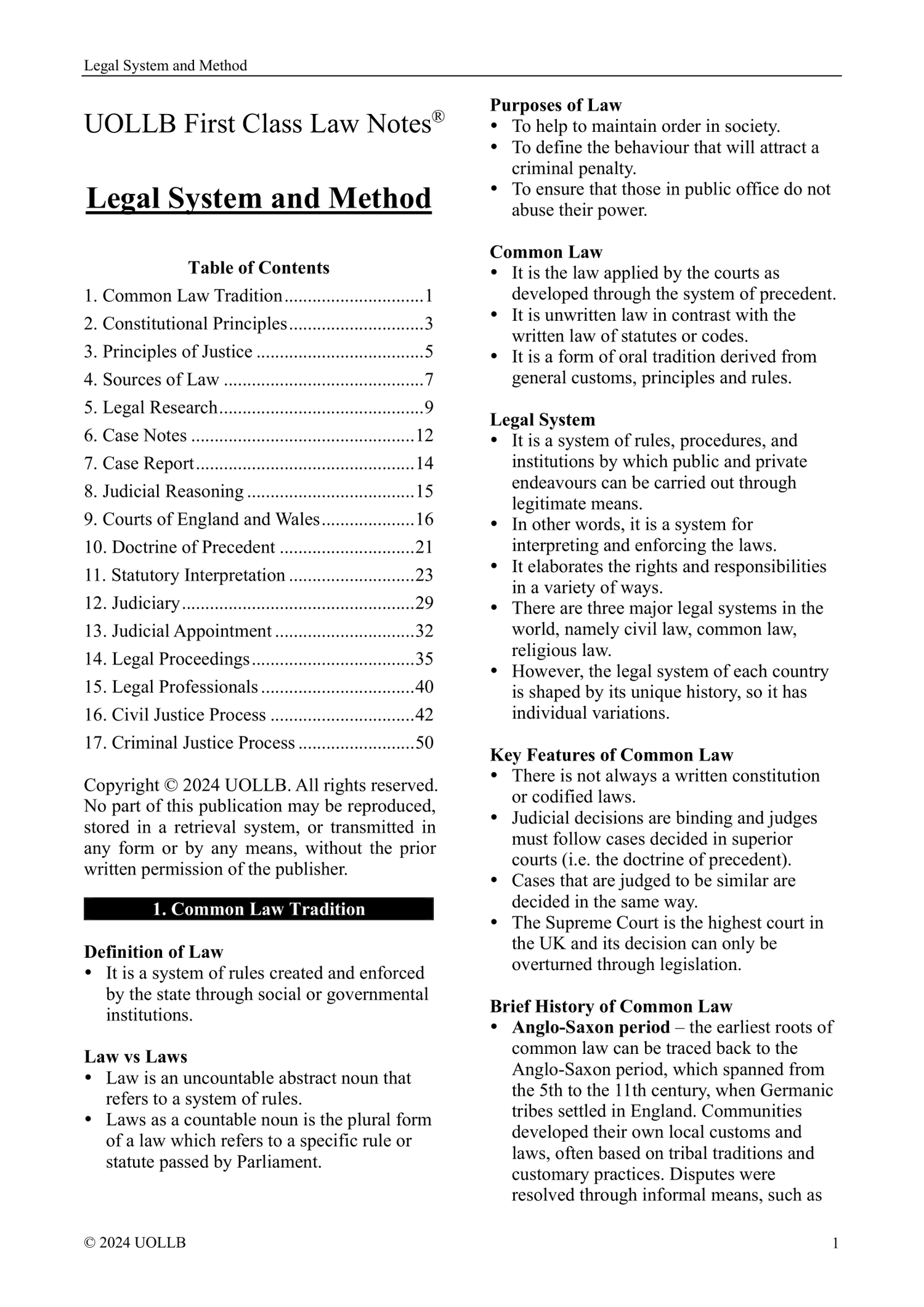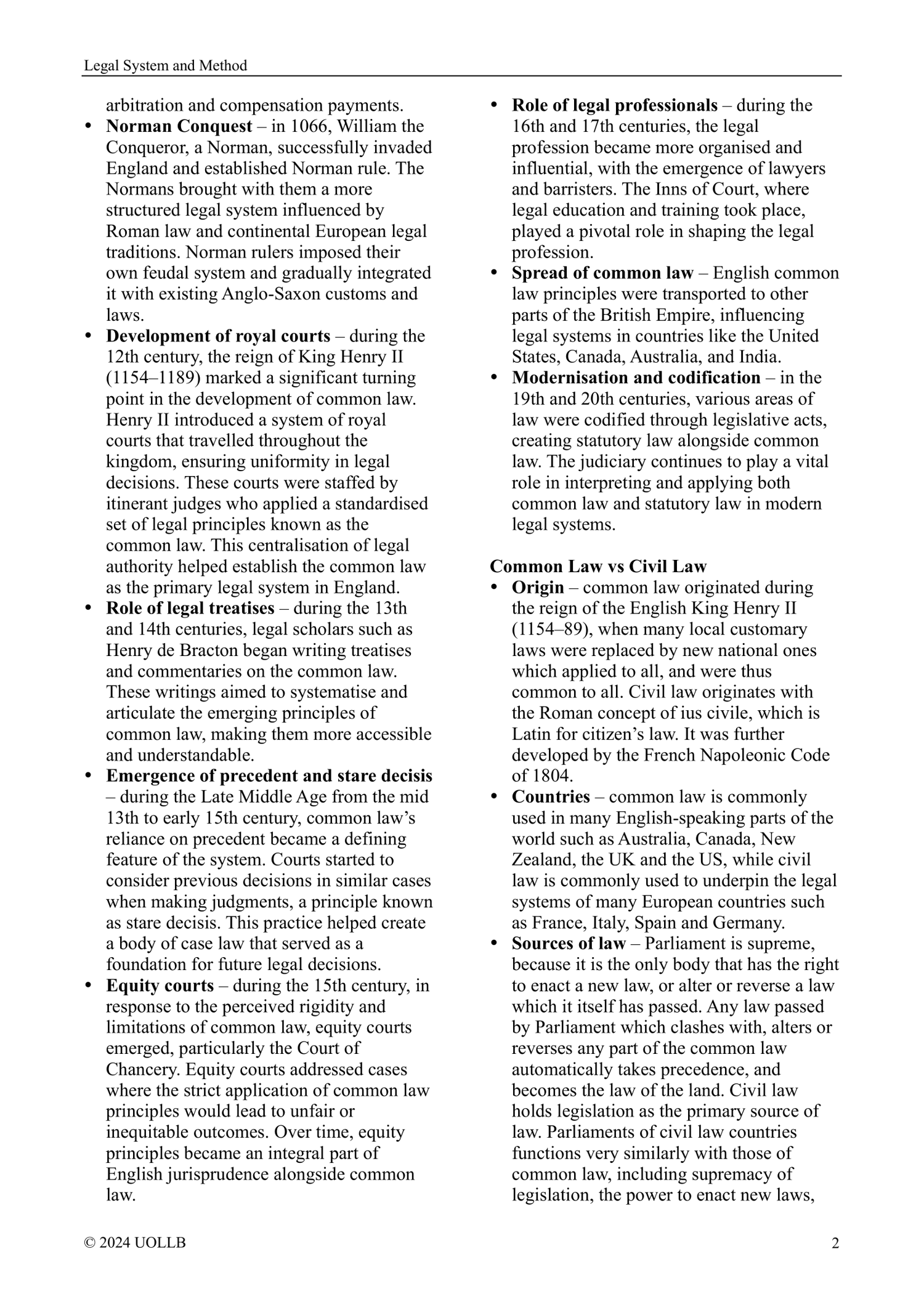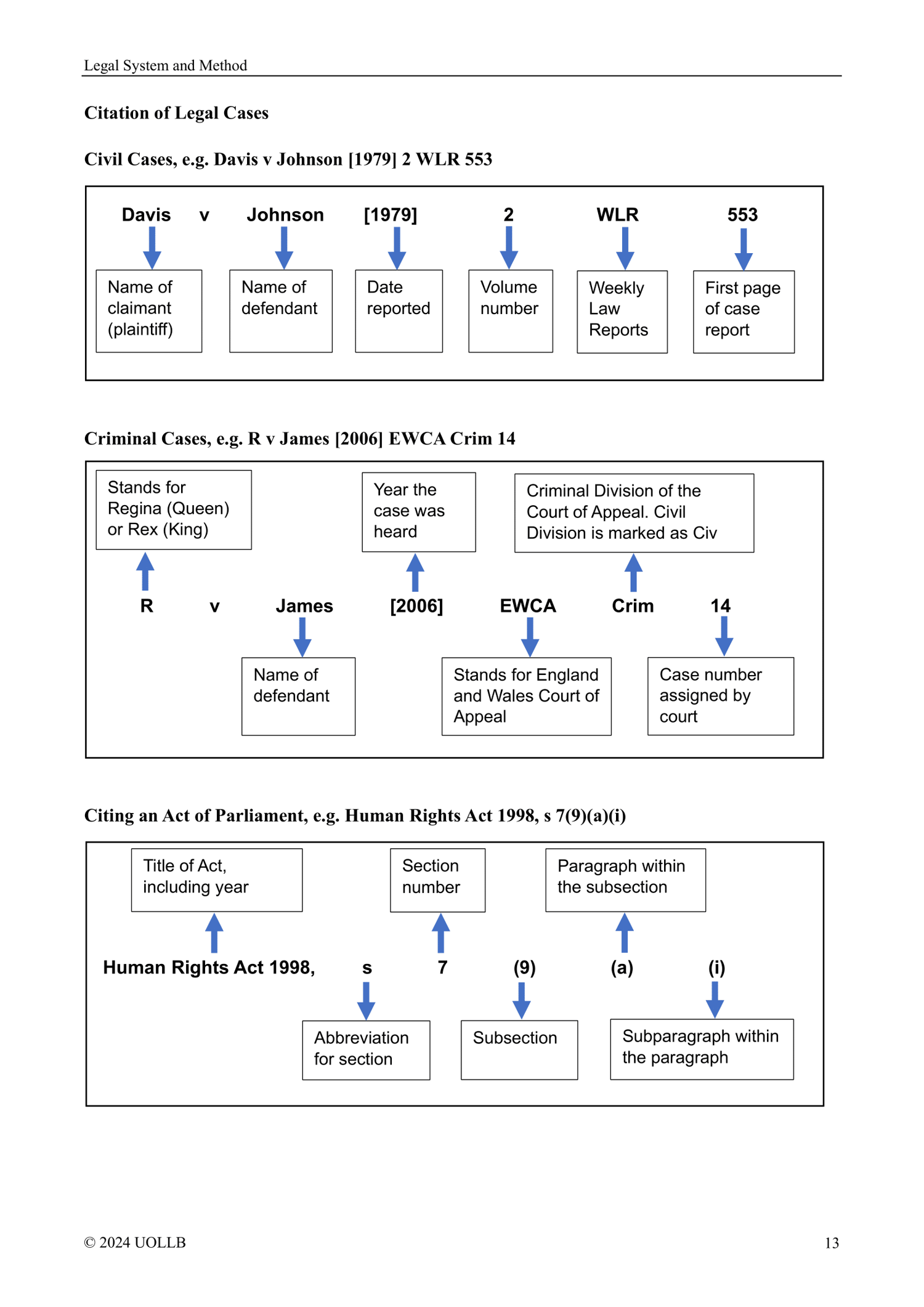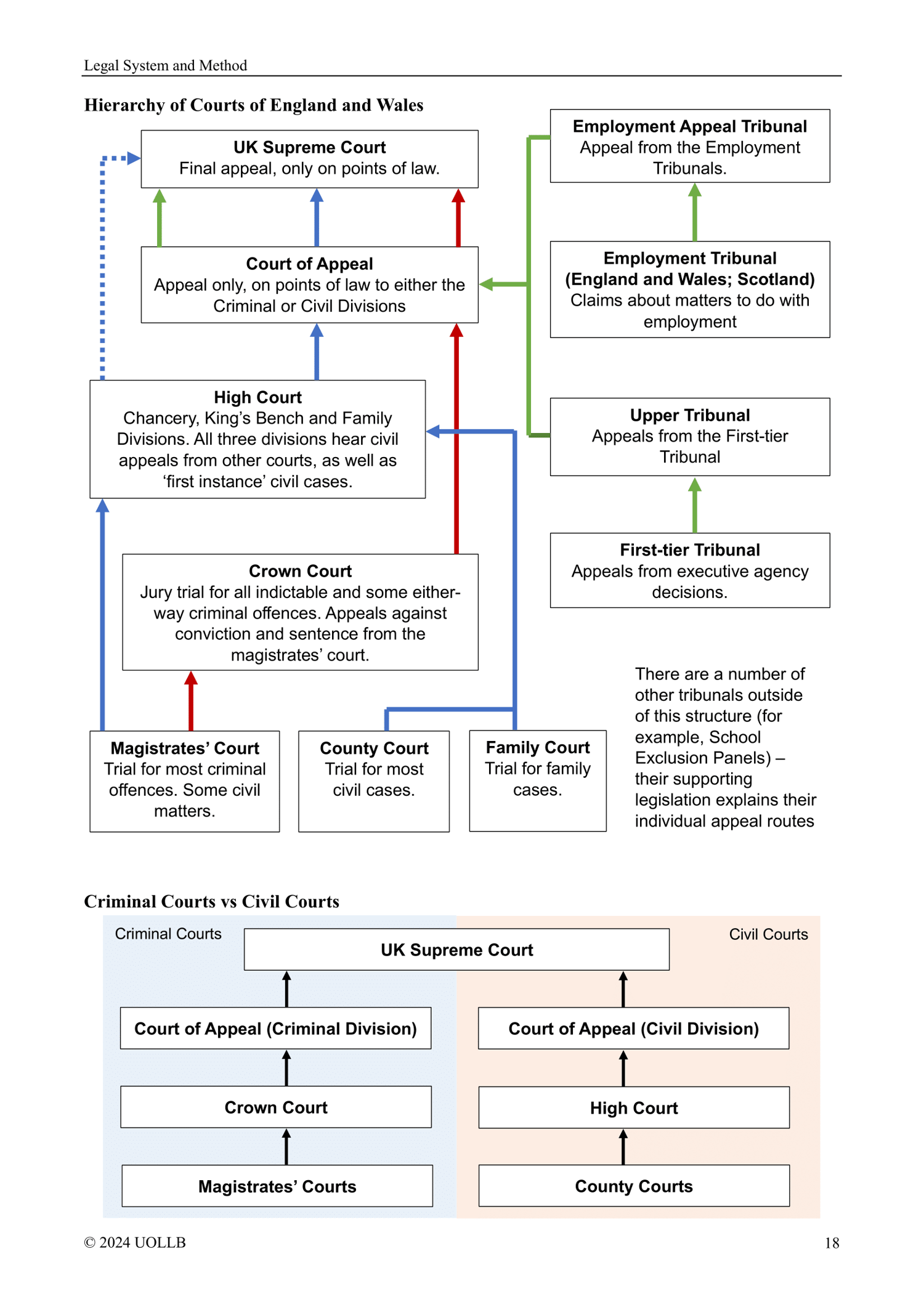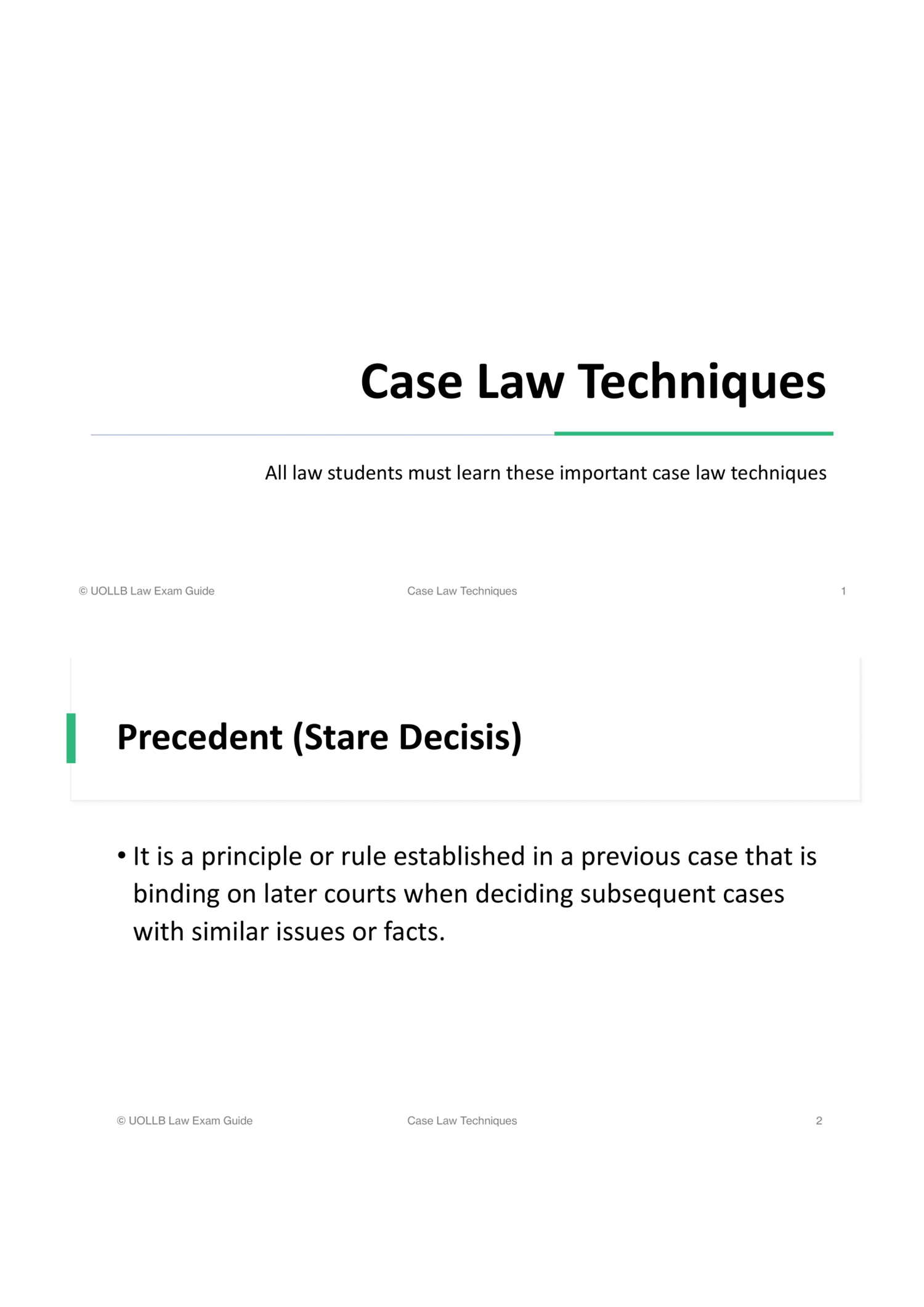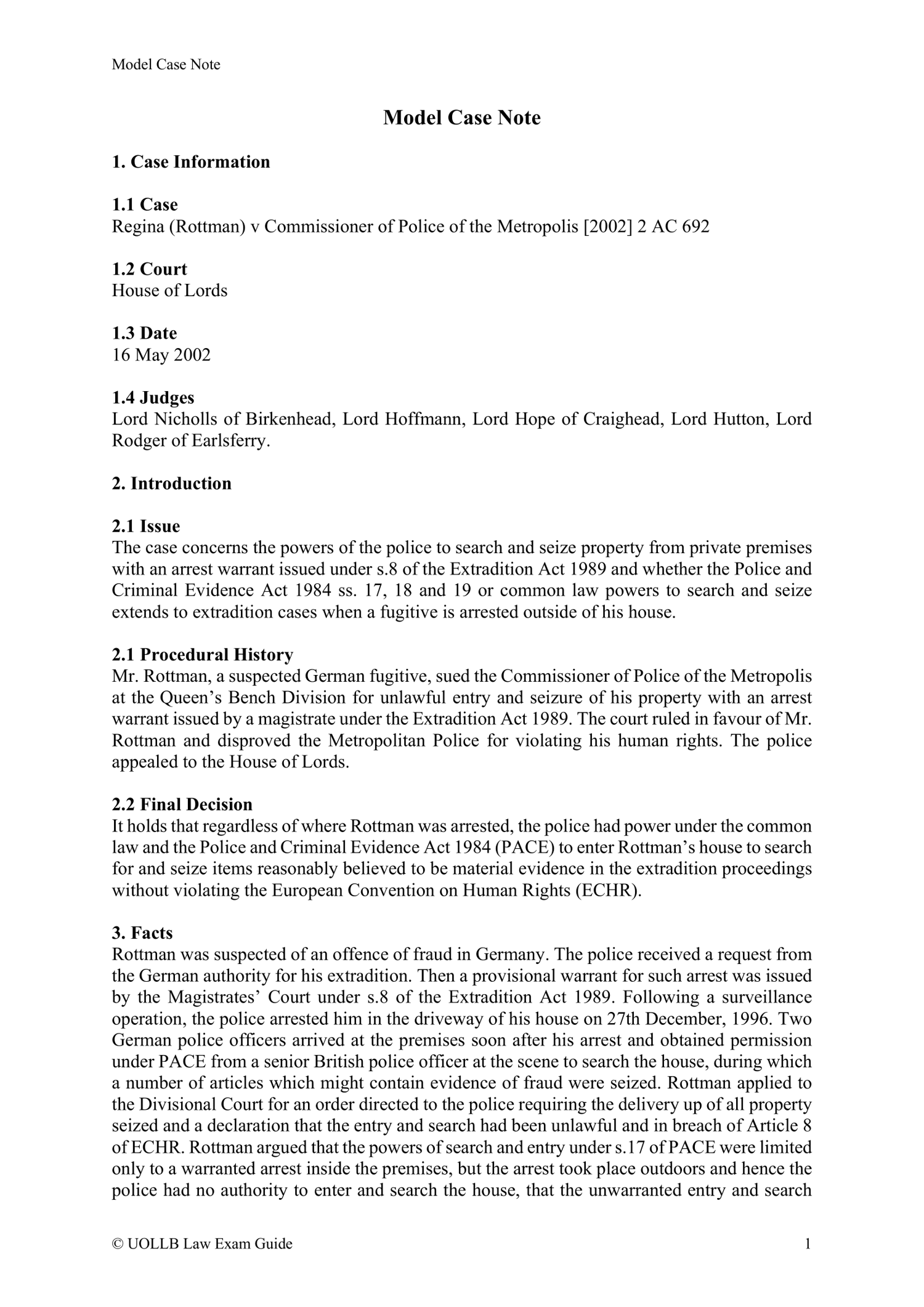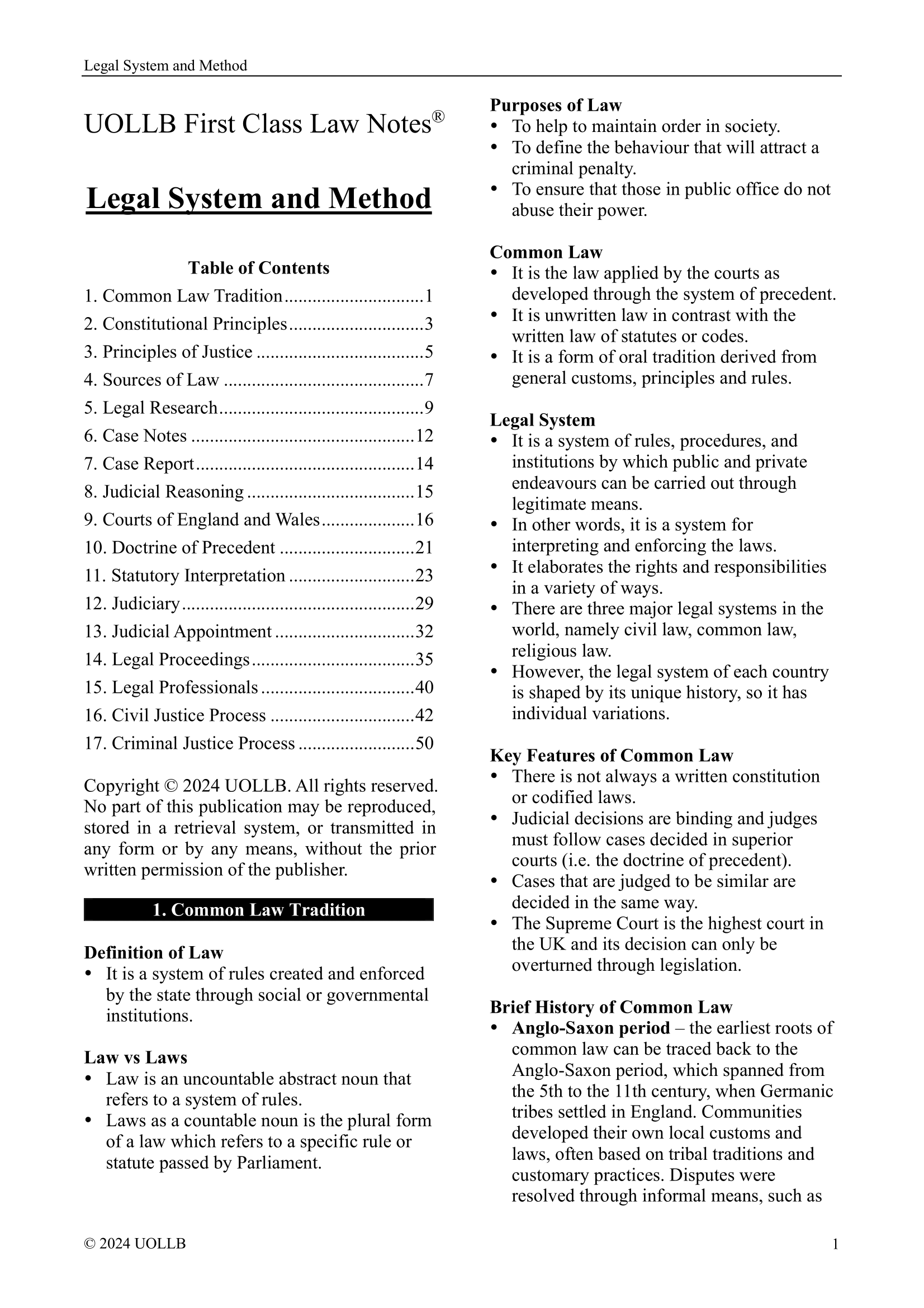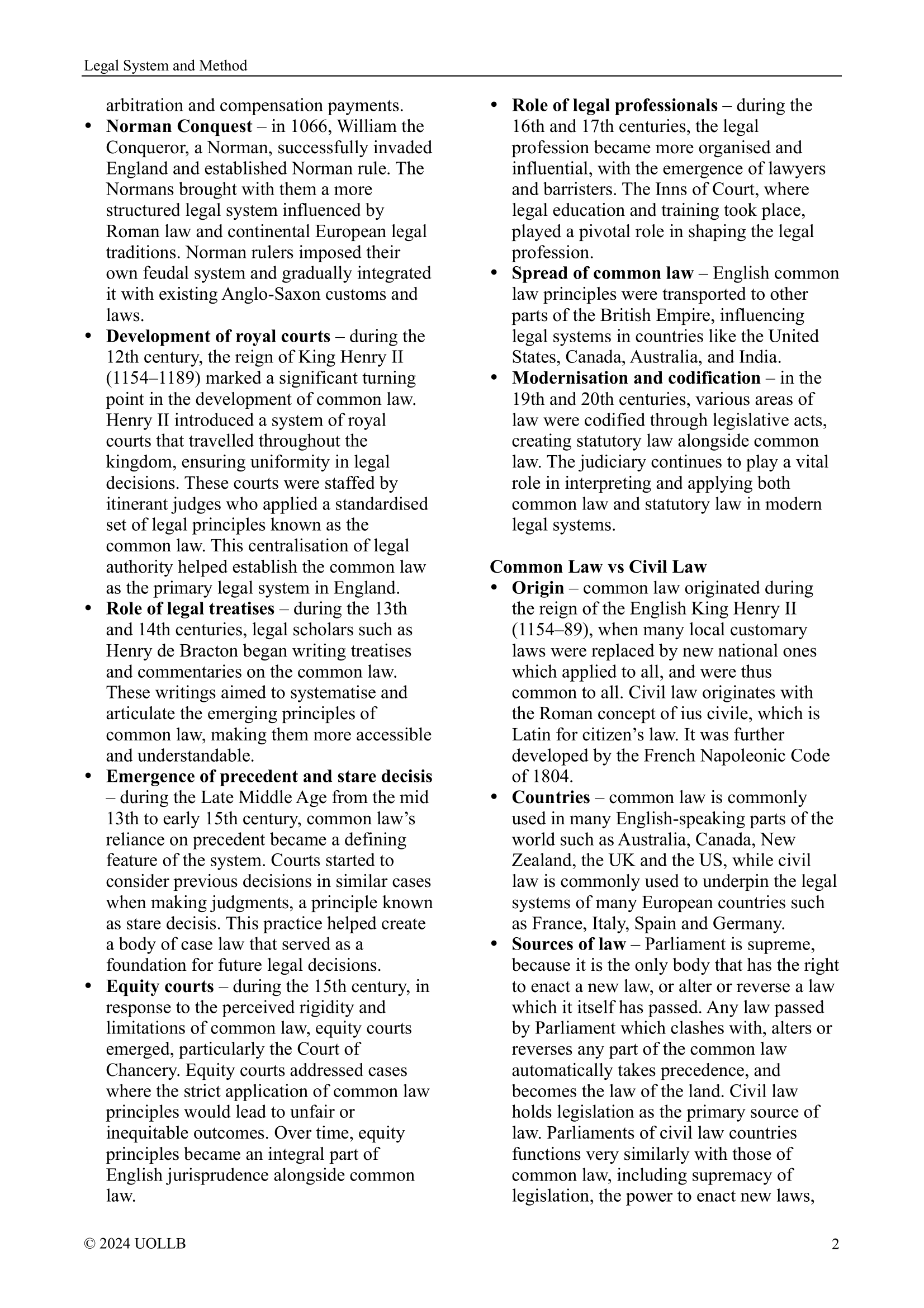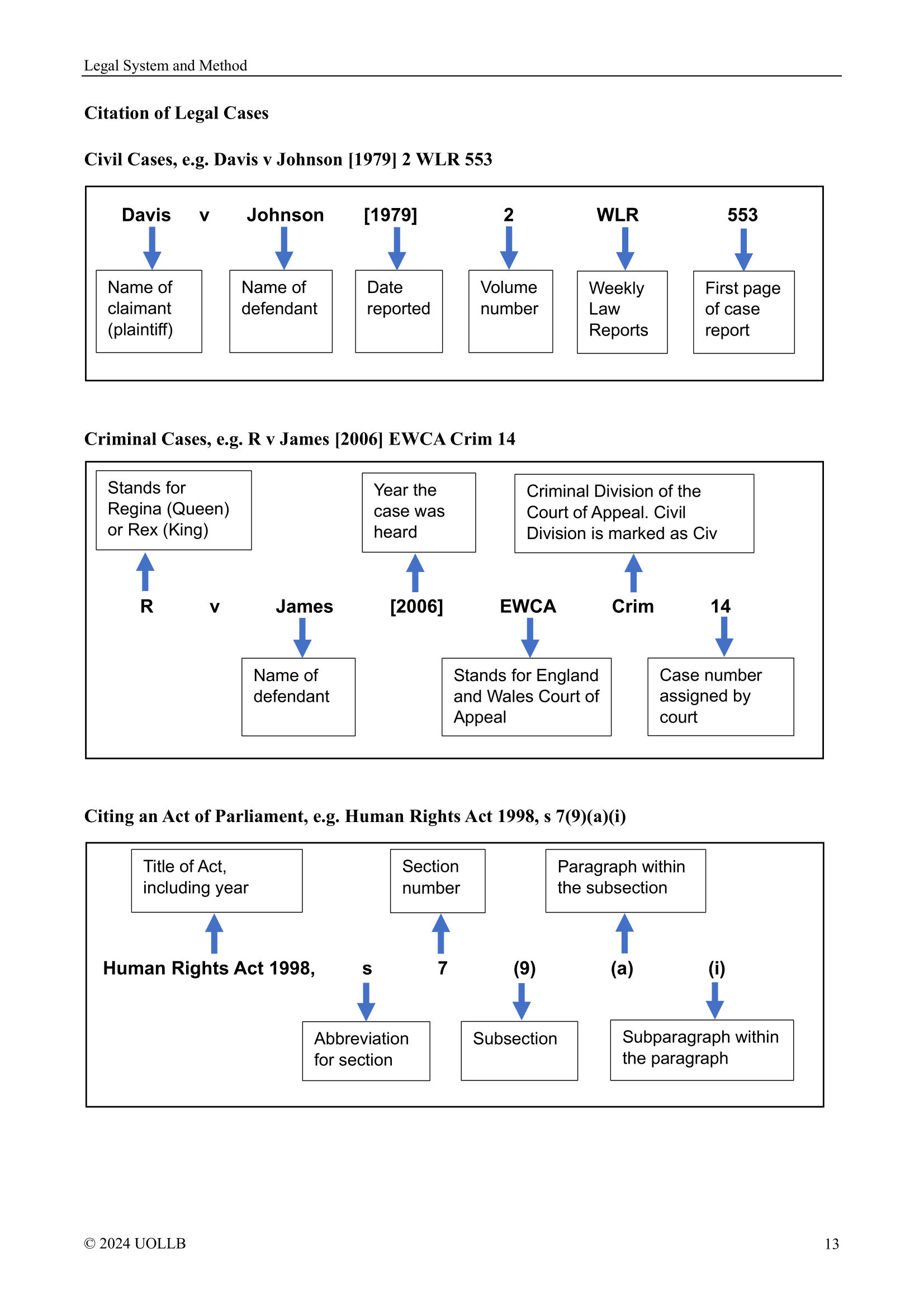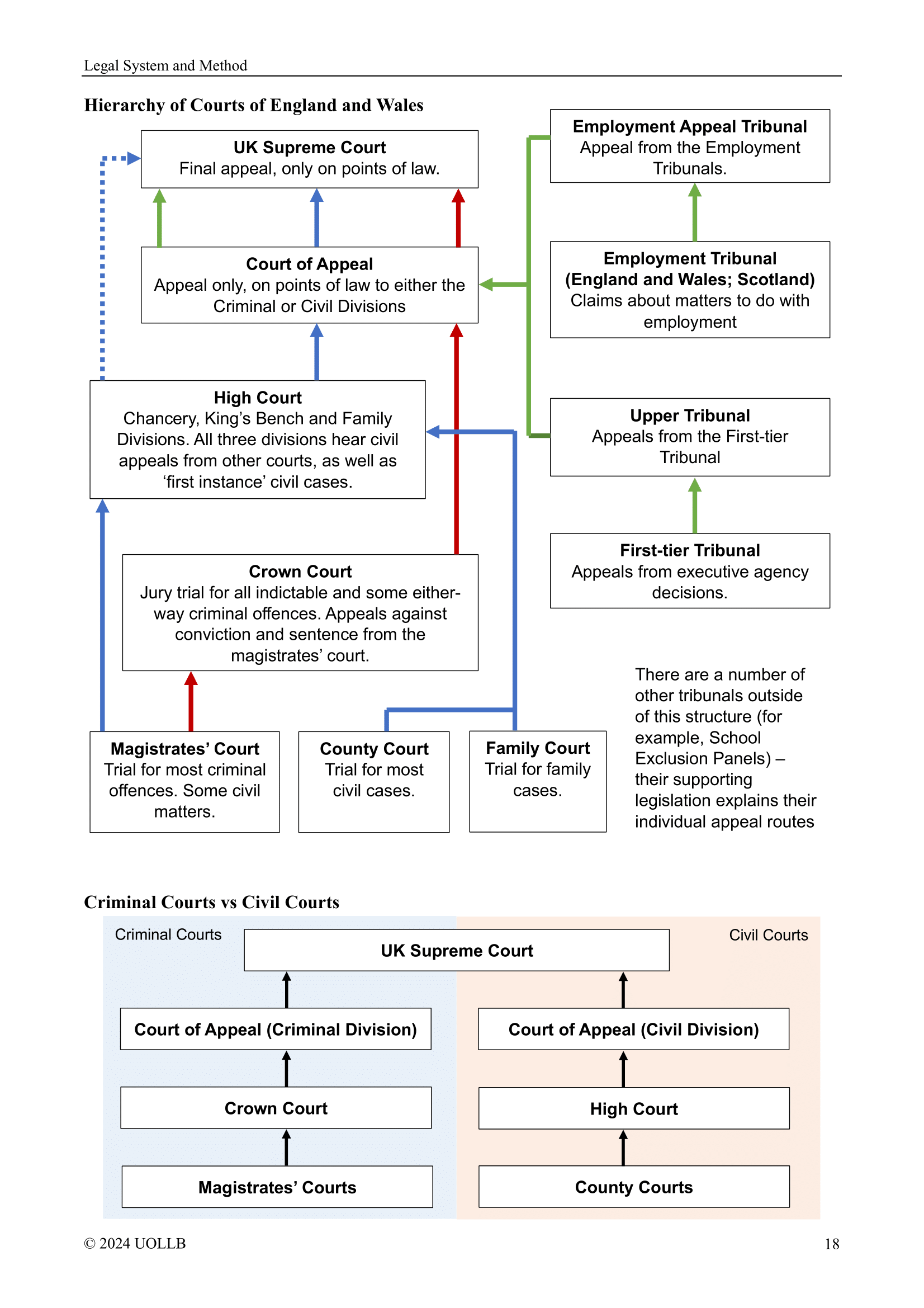Legal System and Method is a module that focuses on the study of the structure, principles, and processes of the English legal system. It provides a foundation for understanding how law operates and how legal issues are resolved. It also explains how laws are created, applied, and interpreted. Here are the topics you will learn in this module.
Common Law Tradition
This topic explores the historical development and characteristics of the common law legal system. It examines how legal principles and rules are established through judicial decisions and the concept of legal precedent. It also analyses the role of judges in interpreting and applying the law in the absence of specific legislation.
Constitutional Principles
Constitutional principles refers to the fundamental rules and principles that govern the structure and operation of a country's constitution. This topic delves into the key constitutional principles, such as the separation of powers, rule of law, parliamentary sovereignty, and protection of fundamental rights and freedoms. It explores how these principles shape the legal system and the relationship between the state and its citizens.
Principles of Justice
This topic explores the fundamental concepts of fairness, equality, and due process in the legal system. It examines the principles of natural justice, including the right to a fair trial, impartiality, and procedural fairness. It also analyses substantive fairness, which focuses on the just and equitable outcomes of legal processes.
Sources of Law
Sources of law refer to the origins from which legal rules and principles are derived. This topic explores the various sources of law, including legislation, judicial decisions, legal principles, and custom. It examines the hierarchy and interaction between these sources, as well as the principles of legal authority and validity.
Legal Research
Legal research involves the systematic investigation and analysis of legal issues and authorities. This topic covers research methods, techniques, and resources used to find and analyse legal materials. It explores primary sources such as statutes and case law, as well as secondary sources like legal commentaries, scholarly articles, and legal databases. It also includes strategies for efficient legal research and citation methods.
Case Notes
Case notes are concise summaries or analyses of legal cases. This topic focuses on the structure and purpose of case notes. It explains how to identify and extract key information from cases, including the facts, issues, legal principles, and the significance of the case in the development of the law. It emphasises the importance of effective case analysis for legal research and understanding precedent.
Case Report
A case report provides a detailed account of a legal case, including the facts, issues, arguments, and the court's decision. This topic discusses the elements of a comprehensive case report and the importance of accurate reporting. It explores the structure and format of case reports, as well as their role in legal research, precedent analysis, and legal writing.
Judicial Reasoning
Judicial reasoning refers to the process by which judges analyse legal issues, apply legal principles, and arrive at decisions. This topic examines different methods of judicial reasoning, such as deductive reasoning, analogical reasoning, and policy-based reasoning. It analyses the role of legal precedent, statutory interpretation, and persuasive arguments in judicial decision-making.
Courts of England and Wales
This topic focuses on the structure and hierarchy of the courts in the jurisdiction. It explores the roles and jurisdictions of different courts, including the Supreme Court, Court of Appeal, High Court, and specialised tribunals. It explains the functions of each court and their relationship to one another in the English and Welsh legal system.
Doctrine of Precedent
This topic explains how precedent operates in the legal system. It covers the concept of binding and persuasive precedent, the hierarchy of courts, and the process of following and distinguishing existing legal precedents. It explores the role of precedent in ensuring consistency, predictability, and stability in the law. It also discusses exceptions to the doctrine of precedent, such as overruling and distinguishing cases.
Statutory Interpretation
Statutory interpretation involves the process of understanding and applying legislation. This topic explores the principles and methods used to interpret statutes. It covers the literal rule, golden rule, and mischief rule, as well as the role of legislative intent and purpose in statutory interpretation. It also examines the use of extrinsic aids, such as legislative history and parliamentary debates, in interpreting statutes.
Judiciary
This topic focuses on the judiciary and its role in the legal system. It examines the appointment and qualifications of judges, judicial independence, and the principles of judicial ethics and conduct. It also explores the functions and powers of the judiciary, including adjudication, interpretation of laws, and judicial review of administrative actions.
Roles in Legal Proceedings
This topic explores the various roles and responsibilities of individuals involved in legal proceedings. It examines the roles of judges, barristers, solicitors, legal representatives, witnesses, and jurors. It explains their ethical obligations, duties to clients and the court, and the interactions between different participants in the legal process.
Civil Justice Process
This topic focuses on the procedure for resolving civil disputes. It covers the stages of civil litigation, including pre-action protocols, pleadings, disclosure of evidence, trial, and remedies. It explores alternative dispute resolution methods, such as mediation and arbitration, as well as the enforcement of court judgments.
Criminal Justice Process
This topic explores the stages involved in the investigation, prosecution, and adjudication of criminal offences. It covers topics such as arrest, charging, bail, plea bargaining, trial procedures, sentencing, and appeals. It examines the rights of defendants, the burden of proof, and the role of various actors in the criminal justice system, including law enforcement agencies, prosecutors, defence attorneys, judges, and juries.
The study of Legal System and Method equips you with a comprehensive understanding of how laws are created, interpreted, and applied in society. It provides a framework for analysing legal issues, conducting research, and participating effectively in legal proceedings. By examining the topics within this module, you will gain a deeper insight into the fundamental principles and processes that underpin the legal system.
Use our highly acclaimed Legal System and Method notes to smash this module now.






















